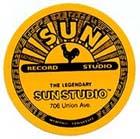
Great Balls of Fire.
We haven’t been this excited since Commercial Appeal editorial writers rhapsodized about how important it was to Memphis that The Rolling Stones booked a concert date in the FedEx Forum.
That’s right up there with getting all tingly when Hard Rock Café finally built its umpteenth restaurant on Beale Street. It was a street that needed no external validation.
The same goes for our city. It was said that the Stones’ gig here was validation of our rich musical heritage. Of course, they’re also appearing in 49 other cities, so musical validation must be a booming business these days for rock and roll’s best band.
Now, it’s the possible purchase of Sun Records’ label that’s supposed to make our pulse race. It was reported that local Music Foundation officials met with the present owner of Sun Records, a Nashvillian, and discussed buying the label and returning it to Memphis.
While it may sound poetic for rock and roll’s most mythic label to have a Memphis post office address once again, it seems almost irrelevant to have this on our top 100 list of things to do to support Memphis music. Today’s consumers could hardly care less about labels or locations or even products they can hold in their hands.
The future of the music industry is sealed.
We are in the midst of the most rapid change in technology in history, and it will leave the music industry with as little resemblance to its old business model as cd’s are to 78 r.p.m. records.
New technologies have ushered in a revolution, but the music industry clings perilously (and ultimately, futilely) to a share cropper business model that they have used since the days of the Victrola. In the face of peer-to-peer file sharing, CD burning, digital radio channels and subscription services, the industry today is mired in deep, deep denial.
Rather than cling to old business models that will eventually capsize under the weight of newer and newer technology, the music industry needs to tap into the legendary vein of creativity that is supposed to be at its heart. The same goes for Memphis.
Rather than chase the vestiges of old business models – labels and publishing – we need to tap into our legendary vein of creativity in both music and entrepreneurship to stake out a distinctive place as the polestar for the digital music age.
Before long, we will witness the disappearance of CD’s and record stores as we know them. The book, The Future of Music: Manifesto for the Digital Music Revolution, offers a provocative view of a world where “music will be like water: ubiquitous and free-flowing.” It sees a new age where individual CD sales will be replaced by "a very potent 'liquid' pricing system that incorporates subscriptions, bundles of various media types, multi-access deals and added-value services."
Here in Memphis, there’s a digital outpost for the revolution right under our noses – www.livefrommemphis.com. For years, Christopher Reyes has understood that a change is gonna come, and he’s been working to make sure Memphis bands were at its forefront, connecting them directly to consumers and fans. Long before anyone in Memphis was talking about change, he saw the metamorphosis for the music industry.
In Cities in Civilization, Peter Hall writes for 1,168 pages about how particular cities suddenly become exceptionally creative and innovative. He said some urban centers flourish, decline and reawaken periodically. He concentrates on about 20 cities from the Golden Age of Greek civilization to London’s glory days of capitalism in the 1980’s.
One of the featured cities is Memphis from 1948 to 1956. Calling our city “the soul of the Delta,” he writes about the collision of musical styles that produced rock and roll and transformed American music forever. He makes the case that Memphis’ burst of creative genius resulted from the combination of advances in technology, the rise of independent record labels and the impact of “outsiders.”
Those are lessons worth remembering. Rather than looking backward for labels, Memphis can again look ahead and transform the music industry. If we can grasp the impact of new technology, changes in business models and the creative genius of outsiders like Christopher Reyes, we can become as important to the music world to come as we were to the one in our past.
The asking price for Sun Records’ label: $35 million. So many good projects in Memphis go wanting for a few thousand dollars. One of them is livefrommemphis.com. Now that’s a quandary that no one would understand more than Sam Phillips, and he’d surely tell us to use our money to do what Memphis does best – make music.



2 comments:
Stax & Sun were both shoe-string operations run on no budgets. The time to buy Stax was in 1977 at or before auction. U.P. shut down Stax and sold them for $1.5 million (including the publishing)--one of the worst business deals in history--now worth over $100 million). Anyone who has $35 million (or more) to invest in Memphis music should do so in relevant current activities like some of the great small independent labels, Live from Memphis, or an all Memphis satellite radio station broadcasting Memphis music and events internationally 24/7.
Live from Memphis is a great, modern Memphis shoe-string operation. Where is the Memphis Music Foundation investment on this great project?
Great article!
That about sums things up.
Post a Comment